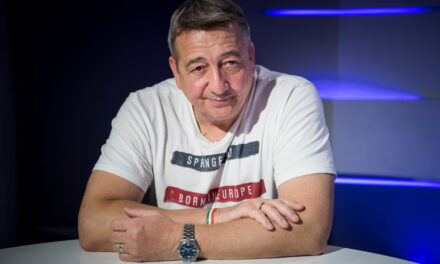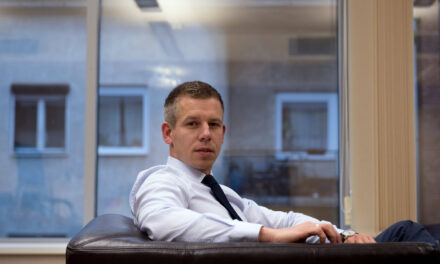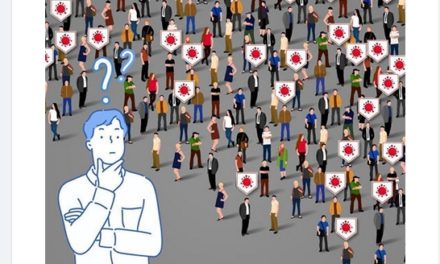gave at the plenary session of the European Parliament in Strasbourg, as part of the debate series "This is Europe", in which he emphasized, among other things, that Germany is now Ukraine's biggest supporter within the EU, and it remains so. However, the press also highlighted several other important elements of the speech, from which - in close accordance with Scholz's earlier statements - a partial vision emerges of what kind of future the German politicians, who are considered to be a major part of the Union, intend for Europe.
According to the German Prime Minister, if the states of Europe do not unite and act together, then the continent will become marginal and will not be able to have a say in the future of the world. Addressing the member states, Scholz asked them to better coordinate their armament projects, and in essence, in his speech, he advocated a geopolitical union that could compete with Russia and China, and he also confirmed that the Western Balkan states that are approaching the EU, as well as Ukraine , Moldova and later Georgia should also become part of the community. Scholz called it "really embarrassing" that the integration of the six important Western Balkan countries has made little progress over the past two decades.
According to the Federal Chancellor
certain member states should not be allowed to block decisions to include additional countries with their veto, therefore the community must change its decision-making processes.
Scholz also repeated his call for more council decisions to be made by qualified majority in foreign and tax policy (that is, there should be no unanimity in these areas). For this, he is counting on the support of the majority of the European Parliament, however, as a piquant point of the matter, he would be faced with the decision-making difficulty that moving away from the principle of unanimity would require the unanimous decision of the EU member states.
Part of the overall logical picture is that this decision-making change is required in the long term - based on the German Chancellor's argument - by the subsequent enlargement of the European Union (with the Balkan member candidates, as well as the aforementioned Ukraine, Moldova and, in the long term, Georgia) because it is even wider than the current one. the community will have to make appropriate decisions quickly and efficiently. Furthermore, this includes the inclusion of already EU members Croatia, Romania and Bulgaria in the Schengen area. In this kind of thinking, it is about deepening the community within the circle of existing members and expanding it with additional member states, even if this idea contains contradictions. Scholz has already underlined that the expansion of EU membership to 30 or even 36 countries would require significant changes in the organizational and administrative processes, and that in addition to reducing the principle of unanimity in the Council's decision-making, the system of EU commissioners should also be reconsidered. Of course, the German government actors must also be aware that the smaller member states would hardly voluntarily give up, for example, their right of veto.
The idea would reduce the influence and political weight of the medium-sized and populous, largely East-Central European member states, which have been well established so far,
leaving the EU in 2020 , without whom it is more difficult for them to do so-called form a blocking minority (the blocking minority must consist of at least four members of the Council). According to the Commission's plans, the use of qualified majority voting in the Union would be expanded in additional fields or in foreign policy, in general, the powers of individual member states would be further reduced - thus their ability to make binding decisions in the affairs of the community, taking into account their will. The trend is clearly indicated by the fact that the Treaty of Lisbon, which entered into force in 2009 and supplemented the previous treaties, also increased the number of policy areas in which the Council decides by means of qualified majority voting.
The same conflict of interest exists with Central and Eastern Europe in terms of immigration policy. In several previous statements, Scholz asked the EU member states to
the migration policy must be pursued jointly, the center of which is solidarity.
In his speech on May 9, he called for the implementation of the currently feasible regulations until next spring's European Parliament elections, which means that skilled workers can enter the EU legally, and that the countries of origin and transit must take back people who do not have a residence permit in the to stay in the EU. was agreed upon at the EU summit on February 9, 2023 (the European Council then held a one-day summit in Brussels).
Ursula von der Leyen, the president of the European Commission, said at the February summit that there are three financing options available in the EU: national resources, funds within the framework of the solidarity mechanism between member states, and EU budget resources. The President of the Commission believes that these subsidies should primarily concern infrastructure, "without which no border fence can function". That is why we need cameras, electronic surveillance, staff, vehicles and watchtowers. Also in February, Manfred Weber, group leader of the European People's Party, said that fences are also needed in exceptional cases, and EU support should be provided for them. True, according to the German People's Party politician, standing by Italy means that other countries must accept asylum seekers as well. And this is in line with Scholz's idea that the EU should be united in terms of migration and the reception of refugees.
This principle is supported by the fact that Italian Prime Minister Giorgia Meloni reported that at this summit it was agreed that, in the case of illegal migrants - in order to increase the number of returns - the rejection of asylum applications in one EU country will also be recognized in all other member states. According to the prime minister, this is a step in the right direction, as it is a fact that migration is always a pan-European issue.
As far as the regulatory framework is concerned, the European Union has developed it over the years regarding the legal migration of highly qualified, marketable workers in Europe, students, researchers, seasonal workers, and those applying for family reunification as an immigration procedure. agreements with the decisions of the Council in order to create fast and efficient procedures for the return of irregular migrants.
It can be concluded from the German statements that
for now, the real change in the European Union's migration policy has not started, and a significant number of EU politicians still insist on the idea of "refugee solidarity" within the EU.
Taking into account the will of the European voters, they recognize the importance of the safe guarding of the external borders, thus also strengthening the security within the EU community as a priority, but most of them maintain double-edged speech, and Hungary, for example, is still under pressure due to its strictly consistent migration policy.
The future change of direction is not yet certain. Based on the previous speeches of the German chancellor, there is no reason to assume that the war really changed a lot. speech in the Bundestag on February 27, 2022 , in which he reacted to the Russian invasion launched against Ukraine a few days earlier, he described the attack as a historical turning point (Zeitenwende in German) and then announced that in response his government would launch a 100 billion euro fund for the to a significant increase in military spending, thus changing Germany's previous cautious defense policy.
Berlin must make changes in its foreign policy in such a way that it is constantly held accountable at home for not showing more convincing determination. These debates are largely also taking place on the EU stage: on May 9, Manfred Weber spoke in the EP about the fact that some people had the impression that the German government did not believe in Ukraine's military success in relation to arms deliveries to Ukraine, and he also pointed out that Germany it also faces China on fundamental issues. He lambasted the federal government coalition for its lack of foreign policy unity and declared: Europe needs guidance from Berlin.
The promised much stronger military presence foreshadows Germany's greater security policy and diplomatic role in matters affecting Europe, which in military terms is a turning point compared to the perception of the past almost eighty years, in fact Bismarck's chancellorship (1871-1890) and World War II. Since the reign of Emperor William (1889–1918). According to analysis , Scholz thereby placed security and defense at the center of the European project, and by strengthening the idea of "sovereign Europe" with transatlanticism, he offers a kind of alternative to Emmanuel Macron's concept of Europe. Based on the chancellor's vision, the war in Ukraine therefore demands a complete transformation in the sense that the old continent must strengthen itself from a military and defense point of view. At the same time, Scholz did not clarify the more precise content of the Zeitenwende in February of last year, and he only elaborated on some of its additional elements Prague and in his recent speech in the EP on May 9. With all of this, Scholz - following the path of the French head of state - began a keynote dialogue about the future of Europe.
German government thinking - in the light of the chancellor's speeches - partially recognized that
in European integration, which started as an economic-based peace project focusing mainly on its own internal affairs, security is gaining an increasing role, and the European Union must focus a significant part of its energies on external threats.
The redesign of the migration policy and the expansion of the European Union towards the Western Balkans could really fit organically into this approach. Scholz also proposes a European air defense system, in which Germany would invest a lot, and urged an "Independent Council" of European defense ministers, similar to EU decision-making in other areas. According to Scholz, the European Union would also have a "rapid reaction force" that could be ready by 2025.
In the aforementioned speech in Prague, Scholz quoted the words of none other than Tomáš Masaryk, the founder of the first Czechoslovak state, in 1918: "states stand by the values from which they are built", by which he meant in practice that the values of the EU must be preserved, which in Article 2 of and appear in today's political debates as the principles of the rule of law and democracy. Scholz's historical quote from Masaryk is peculiar in that the Czechoslovak state after World War I promoted the official ideology that there were no separate Czech and Slovak nations, but only one Czechoslovak nation, with which the Slovaks and other ethnic groups such as the Sudetenland Germans or the great majority of Hungarians living in the Highlands did not agree either. In other words, we were talking about an arbitrary state model and political community that was not born on the basis of decision-making based on consensus, but on common-sense agreement, and which maintained unrest among the minority ethnic groups throughout. The Czechoslovak parallel thus underlines the significance of the conflicts between national identities, independence and the powerful, often merciless, central will. At the same time, it highlights why the way the European Union approaches the situation of indigenous national minorities today is a problem - and unfortunately not surprising.
The aspiration itself, that instead of a slow and bureaucratic community, a more efficient EU capable of responding more quickly to the challenges of the 21st century is needed, which is also capable of protecting itself, can only be supported if it is not realized in the spirit of arbitrary imperial aspirations,
and one of the most important bases for this would be a truly new approach to Germany's relations with its EU and other European neighbors and allies. The new, changing direction can only be hopeful if the German leadership realizes that the continent can be saved from trouble by cooperation between Germany and East-Central Europe based on mutual respect and serving the national interests of both parties. If some of the "reforms" mentioned by Scholz were to become reality, it would certainly mean serious steps towards a more geopolitical EU in the eyes of many, but in the longer term, they could also result in the further disintegration of the integration community - post-Brexit.
Source: EuCET
Front page photo: German Chancellor Olaf Scholz speaks in the debate organized by the European Parliament (EP) entitled This is Europe at the plenary session of the EU legislative body in Strasbourg on May 9, 2023 (Photo: MTI/EPA/Julien Warnand)












